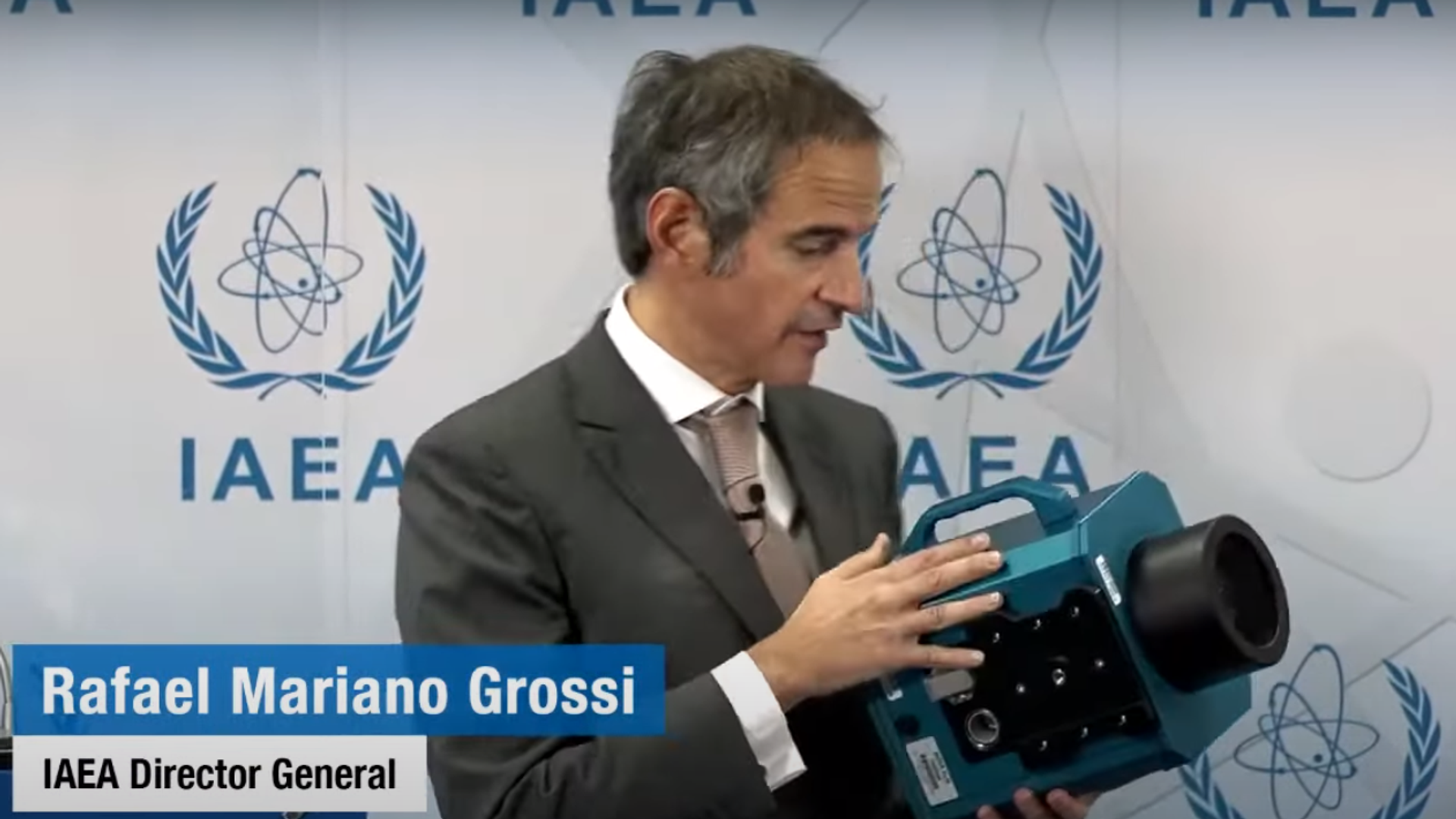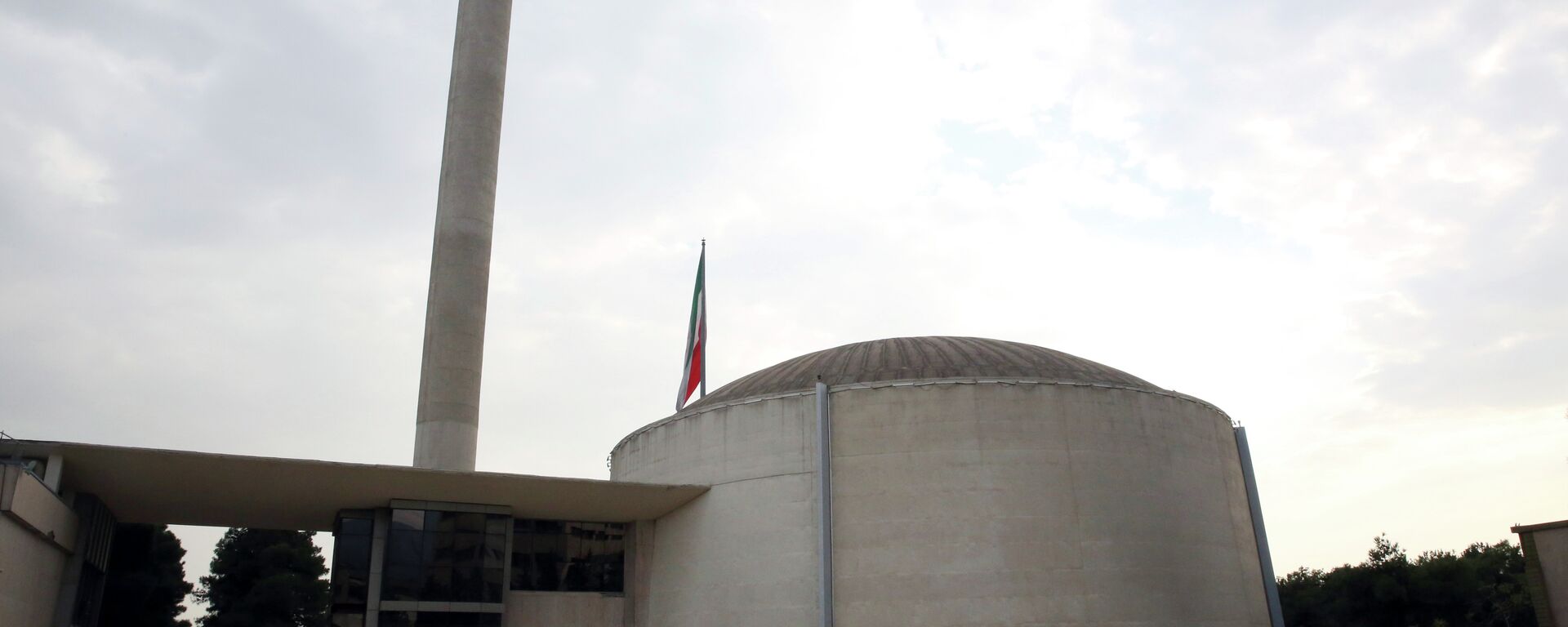Iran Asks Why IAEA Doesn’t Use Capabilities to Stop Nuclear Sabotage Amid Camera Snap Spat

© Photo : YouTube / IAEAvideo
Subscribe
On Friday, International Atomic Energy Agency (IAEA) chief Rafael Grossi expressed “doubts” that footage from one of the four agency cameras installed at the Karaj nuclear centrifuge parts plant simply “disappeared” after June’s suspected sabotage attack against the facility, and demanded to know where it was.
An official from Iran’s Atomic Energy Organization has responded to Rafael Grossi’s claims that the memory card of the camera that was destroyed in June’s attack against the Karaj installation had gone missing and that Tehran owes the IAEA an explanation.
“The camera media storage device being sought by the IAEA chief has been destroyed in a sabotage operation, and the IAEA must answer why it does not use its capabilities to prevent such sabotage attacks, which have known origins,” the official said, speaking to Iran's Noor News.
“In addition to its supervisory duties, the IAEA also has responsibilities to safeguard its members, and in this regard, should be held accountable for failing to prevent the threat to Iran’s nuclear sites and not taking effective action in this regard,” the official added.
Iran suspects that the Karaj facility was sabotaged by Israel’s Mossad on 23 June. The Islamic Republic has also accused Israel of systematically assassinating its nuclear scientists, and has charged Tel Aviv with the November 2020 murder of Mohsen Fakhrizadeh, the de facto chief of Iran’s nuclear programme.
Israel neither confirms nor denies carrying out operations against Iran’s nuclear programme, but adheres to the ‘Begin Doctrine’, named after former prime minister Menachem Begin, under which Tel Aviv grants itself the right to take any action deemed necessary to stop any other Middle Eastern power from developing nuclear weapons. Israel is suspected of possessing an arsenal of up to 400 nuclear weapons, but neither confirms nor denies having them in a policy known as ‘deliberate ambiguity’.
Iran has repeatedly accused the United States and the European of sticking to a “very shameful double standard” regarding Israel’s suspected nuclear weapons, and has asked why the Jewish State seems to be able to get away with possessing such arms with no international oversight while Iran is kept under a watchful eye despite being a member of the Non-Proliferation Treaty and fully implementing IAEA safeguards.
What is the advantage of being both a NPT member and fully implementing the Agency’s safeguards? How could one see the IAEA as a serious, professional and impartial partner when it does not pursue evenly and justly the implementation of its safeguards regime for all its members?1 pic.twitter.com/vV8Sx8f5AR
— Gharibabadi (@Gharibabadi) October 14, 2021
Camera Deal
After the incident at Karaj, Iran removed the four IAEA cameras which monitored the facility, including the one irreparably damaged, and showed them to IAEA inspectors. Iran and the IAEA reached an agreement Wednesday to replace the cameras amid negotiations in Vienna on the Joint Comprehensive Plan of Action nuclear deal, with the equipment expected to be installed “in [the] coming days.” However, Iranian officials have clarified that Tehran would hold on to the footage snapped by the cameras and hand it over to the IAEA only after illegal US sanctions are lifted, with full storage devices to be removed and placed under joint Iranian-IAEA supervision until then.
The seventh round of JCPOA talks concluded Friday. A date for an eighth round has yet to be announced. Iran had warned prior to the negotiations what it wouldn’t continue “talks for the sake of talks” indefinitely.
The Trump administration unilaterally withdrew from the JCPOA in 2018. In early 2021, the Biden administration began negotiations with Iran and other members of the agreement on a US return to the deal, and agreed in principle to the need to remove sanctions against the Middle Eastern nation. However, the countries disagree on which side should make the first move, with Iran saying the US has to lift its crushing restrictions, while Washington says Tehran must return to its JCPOA commitments on the production, enrichment and stockpiling of nuclear material. Iranian negotiators have expressed trepidation over reported US attempts to modify the text of the agreement to include ‘Iran’s regional activities and conventional missile programme’ – both of which Tehran considers nonnegotiable.

